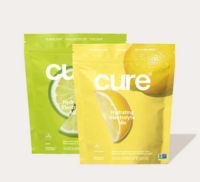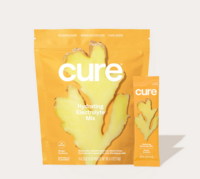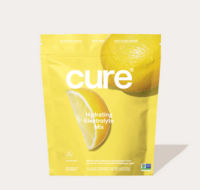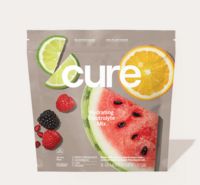Recently, I had the pleasure of sitting down with Claire Virga, Registered Dietitian at Rooted Wellness in NYC, for a Q&A about nutrition as it relates to women’s fertility. In our conversation, we covered everything from what to eat when you first come off the birth control pill to how environmental toxins can affect your fertility. I learned so much from Claire about how to maintain optimal hormone health during all stages of the journey, and if you keep reading I hope you will, too!
Q: What kind of dietary advice would you give to someone who is just coming off of the birth control pill in order to start trying to conceive?
A: This is such an important topic that’s not discussed enough! I find that many women are surprised when they stop taking birth control and start experiencing a whole range of new period-related symptoms like cystic acne, mood swings, irregular cycles, heavy periods and even amenorrhea, or the lack of a period altogether.
For the most part, these are not actually new problems but symptoms of an underlying issue that has been masked, often for many years, by hormonal birth control. For some women with conditions like PCOS and endometriosis, hormonal imbalances and inflammation are to blame for these unpleasant symptoms. However, for most women, these side-effects are often (frustratingly) unexplainable.
Here’s the good news: whether or not you are someone who transitioned easily off the pill or not, there are certain dietary and lifestyle changes that you can make to optimize your fertility and prime your body for a healthy pregnancy. What we eat has the power to influence everything from egg and sperm quality, hormonal balance, implantation and embryo development, and pregnancy outcomes.
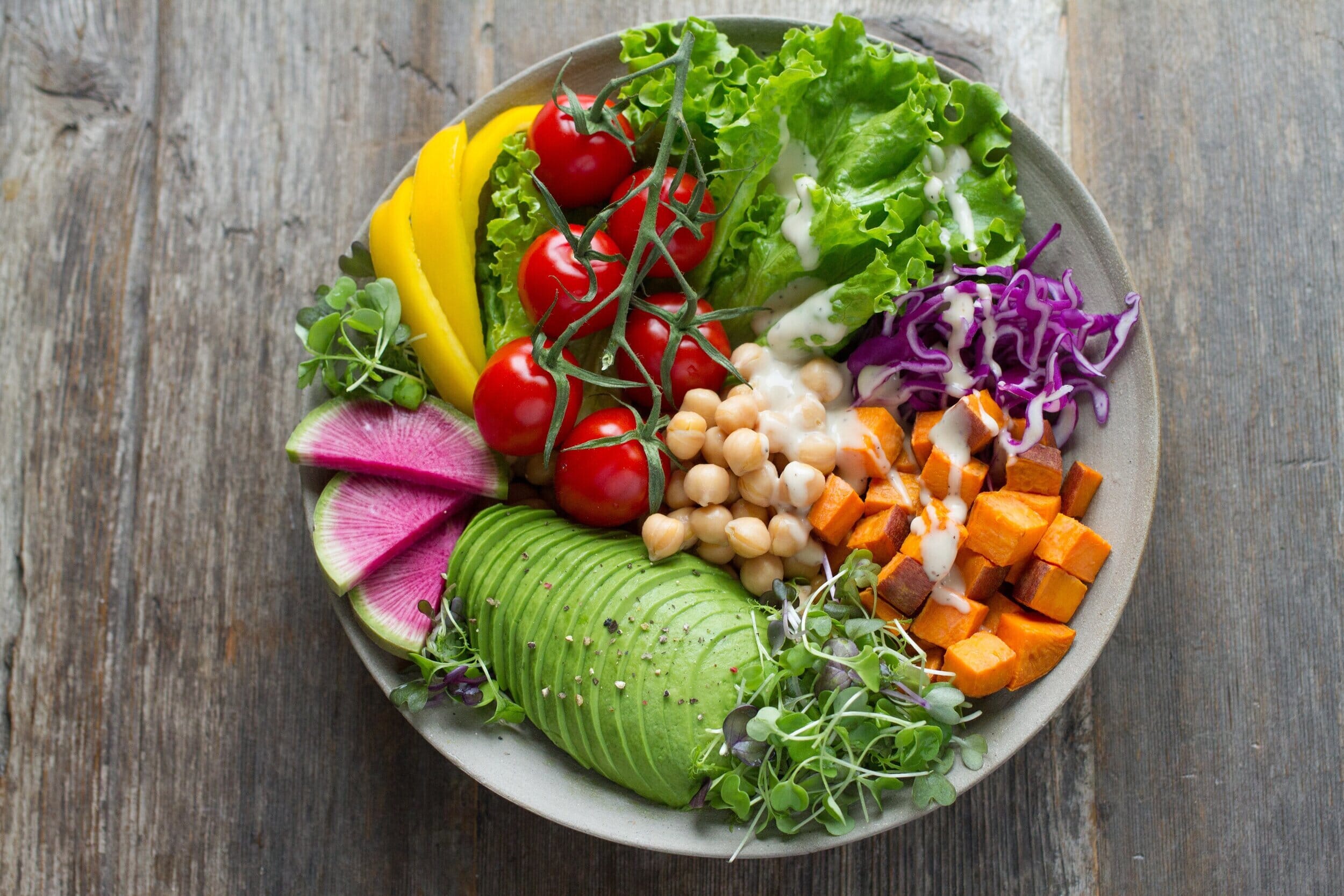
Anti-Inflammatory Diet
Inflammation and oxidative stress can decrease the quality of egg and sperm cells and reduce your chances of healthy conception. Studies have shown that following a Mediterranean diet is beneficial for fertility, likely because it is full of anti-inflammatory foods. The Mediterranean diet includes lots of fruits, vegetables, seafood, whole grains, nuts, seeds and legumes (like beans, chickpeas and lentils) and moderate amounts of poultry, eggs and dairy. It is also important to limit foods that can cause inflammation, like highly processed foods, refined carbohydrates, alcohol, trans fats and processed meats.
Nutrient Depletion
Research has shown that women taking hormonal birth control are more likely to have lower levels of certain vitamins and minerals like B6, B12, folate, vitamins C and E, and zinc, magnesium, and selenium. These vitamins and minerals all play important roles in fertility and healthy pregnancy outcomes. The research also shows that these deficiencies are less common amongst women on the pill who eat a balanced diet. Consuming a diet rich in fruits and vegetables, healthy fats, complex carbohydrates, and lean protein is key to preventing the nutrient deficiencies associated with hormonal birth control.
Folate is of critical concern because not only does folate status affect your chances of becoming pregnant but it also is critical during the first few weeks of pregnancy for the formation of your baby’s spinal cord and brain. The formation of the spinal cord happens during the first 6 weeks of pregnancy, often before a woman even knows she is pregnant, so it is imperative that a woman enters pregnancy with adequate folate status.
In addition to taking a good prenatal vitamin with folic acid, incorporating good sources of dietary folate, like leafy greens, legumes, citrus fruits, nuts, and seeds, is critical.
Q: What are your top three nutrition tips to help support optimal fertility?
A: 1. Eat the Rainbow
I can’t emphasize this one enough! It’s so important that women are not only eating a wide variety of fruits and vegetables but getting the recommended 5-13 (yes, 13!) servings per day. Plant-based foods are full of antioxidants and anti-inflammatory compounds, which decrease oxidative stress and promote egg quality. The colors of fruits and vegetables correspond with the different nutrients they contain so eat fruits and veggies of all different colors to get all of their benefits.
2. Don’t Fear Fat
Including monounsaturated and polyunsaturated fat sources at every meal has been shown to be protective against anovulatory infertility, or infertility due to lack of ovulation. Dietary fats are involved in regulating hormone levels, balancing blood sugar and building cell membranes. Include a good source of healthy fat, like avocados, nuts, almond butter, seeds, fatty fish and olive oil, at each meal.
When it comes to dairy fat, research shows that women who consume more full-fat dairy have a higher chance of becoming pregnant in comparison to those consuming reduced-fat or skimmed dairy products. Ditch the skim milk or reduced-fat yogurt in favor of the real thing.
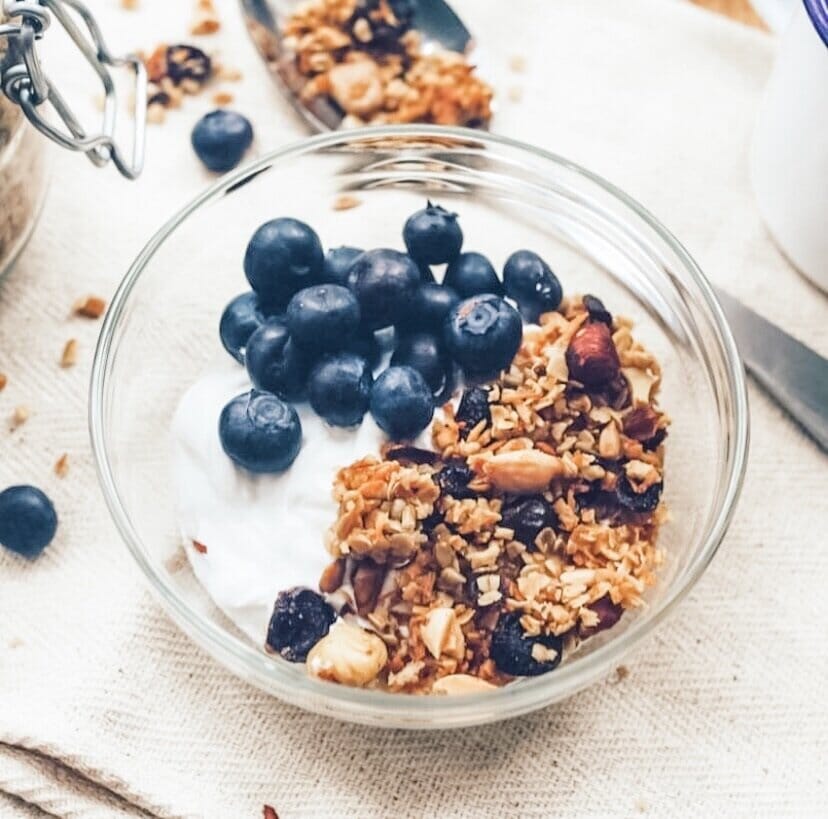
3. Whole Grains for the Win
Studies have shown that women who consume more complex carbohydrates (like whole grains, legumes, fruits and vegetables) have a higher chance of getting pregnant in comparison to those consuming diets rich in refined carbohydrates (like chips, processed snack foods, baked goods, candy and soda). Refined carbohydrates are inflammatory and can disrupt blood sugar balance while complex carbohydrates are full of fiber and promote gut health, blood sugar balance and even weight loss.
Q: Can environmental toxins have a negative effect on fertility?
A: Environmental toxins can absolutely impact fertility because they function as endocrine disruptors in our body. Bisphenol A, or BPA, is a widespread toxin found in everything from plastic containers to the lining of canned foods and even printed receipts! BPA disrupts our endocrine system by mimicking our natural hormones, including estrogen. This leads to the overstimulation or incorrect signaling of certain hormones.
To reduce your exposure to BPA, use glass or stainless steel containers instead of plastic containers to store food and carry a glass or stainless steel reusable water bottle instead of buying single-use plastic water bottles. Avoid canned foods, even if labeled ‘BPA free’ because often chemicals used in place of BPA are just as toxic.
Toxins are also found in our cleaning supplies and personal hygiene products. Thankfully, we have many more non-toxic options available today than we did even five years ago! I recommend using the Environmental Working Group’s Cosmetic Database to check on the safety of beauty and self-care products. I am a fan of the Better Life and Dr. Bronner brands for household cleaning.
Finally, avoiding pesticides and toxins in our food is also important. Buy organic foods whenever possible. If buying organic isn’t within your budget 100% of the time, check out the Environmental Working Group’s Dirty Dozen list for a list of produce that is the most heavily contaminated and that you should prioritize buying the organic version. The Clean 15 is a list of foods that are okay to buy conventionally-produced.

Q: Do you have any dietary advice specific to those dealing with PCOS? What about endometriosis?
A: PCOS is a hormonal condition that can make maintaining a healthy weight and balancing blood sugar difficult. However, every woman experiences PCOS differently so a treatment plan should be highly individualized!
- If overweight, even a small reduction in weight can improve the body’s ability to process carbohydrates.
- nclude high-quality, complex carbohydrates in appropriate portion sizes and ditch refined, processed carbohydrates.
- PCOS is also characterized by inflammation. Eat a diet with lots of fruits and vegetables, healthy fats, and high-quality protein.
- Over-exercising can increase cortisol levels. If regularly engaging in high-intensity exercise, incorporate gentler exercises like yoga or walking, to promote hormonal balance and manage stress levels.
- Endometriosis is an inflammatory condition and similar to PCOS, symptoms vary from woman to woman.
- Avoid highly processed foods and eat real, whole foods whenever possible.
- Women with endometriosis often experience heavy menstrual bleeding, which can lead to iron-deficiency anemia. Include a wide range of iron sources in the diet.
- Digestive issues, such as constipation and diarrhea, are commonly experienced in those with endometriosis. Adjust fiber and water intake and take a high-quality probiotic.
- Avoid environmental toxin exposures: use glass / stainless steel over plastic, buy organic foods, use toxin-free beauty and self-care products.

Claire Virga, MS, RDN is a Registered Dietitian at Rooted Wellness, a private nutrition practice specializing in women's health. Claire is passionate about working with women to optimize their reproductive health and overall well-being through a holistic and realistic approach. Claire has her master’s degree in Clinical Nutrition and Dietetics from New York University. Claire completed her dietetic internship at Montefiore Medical Center, where she provided nutrition counseling and evidence-based medical nutrition therapy to patients with a wide range of medical conditions. Claire has also worked at Plantable, a meal delivery service providing health-supportive meals and coaching. You can visit Claire’s website here.


.jpeg)










